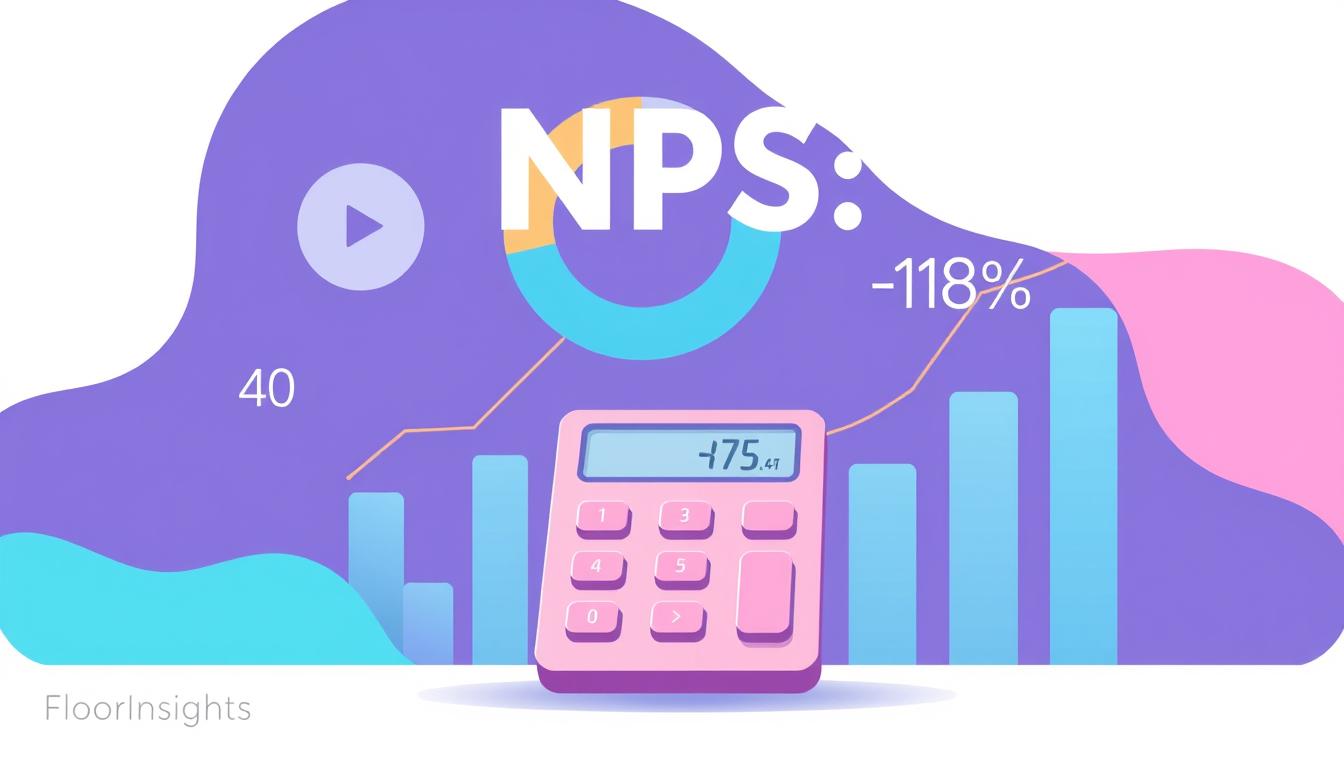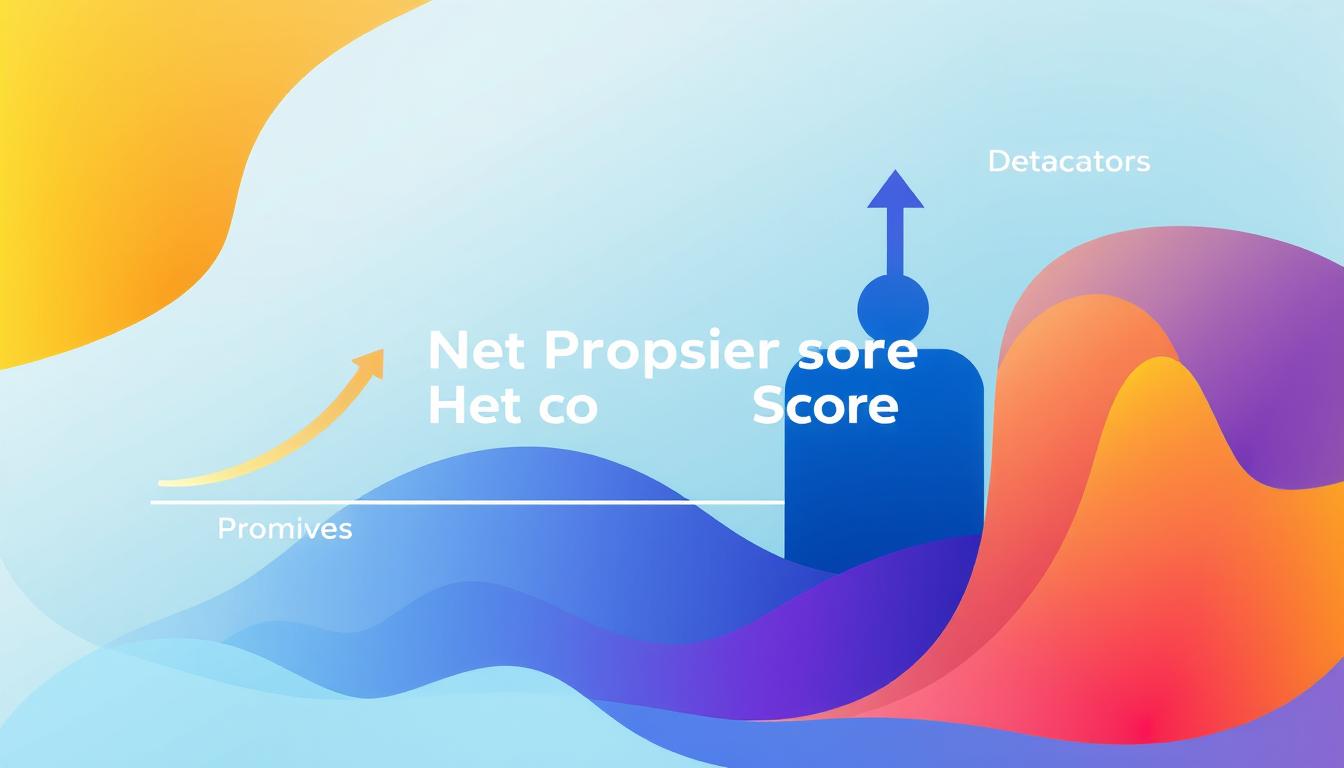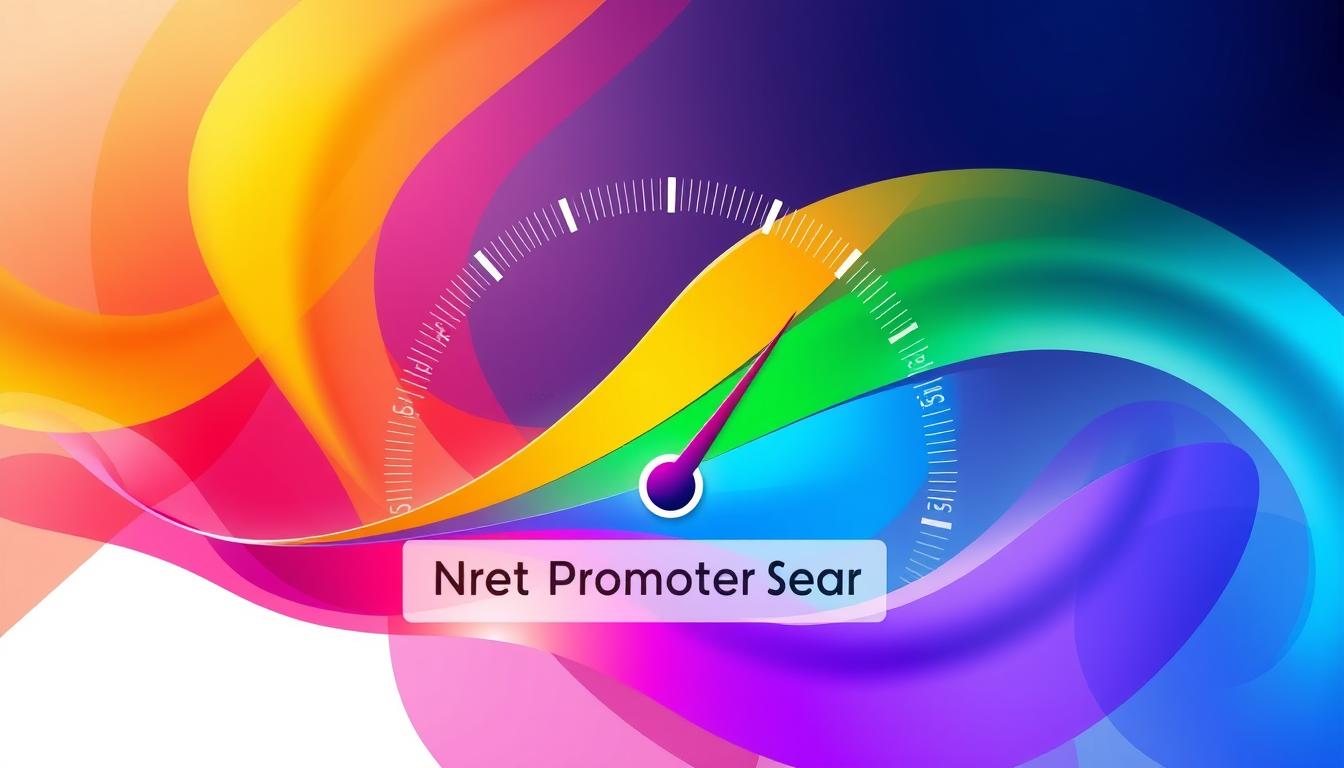As companies in India strive to remain competitive and build lasting customer relationships, the Net Promoter Score (NPS) has emerged as a crucial metric for measuring customer loyalty and advocacy. However, the true secret to a thriving NPS lies in the quality of the products and services businesses offer. In this article, we will explore the intricate relationship between product quality and the Net Promoter Score, uncovering strategies that can help Indian companies boost their NPS by prioritizing exceptional product quality.
Key Takeaways
- The Net Promoter Score is a powerful metric for measuring customer loyalty and advocacy.
- Product quality is a key driver of customer satisfaction and a strong predictor of a company’s NPS.
- Enhancing product quality can lead to higher customer retention and increased brand advocacy.
- Gathering customer feedback and implementing a customer-centric culture are essential for improving product quality and NPS.
- Measuring and optimizing NPS can help businesses in India strengthen their brand reputation and drive sustainable growth.
Understanding the Net Promoter Score
The Net Promoter Score (NPS) is a customer experience metric that provides valuable insights into the loyalty and advocacy of a company’s customer base. This simple yet powerful metric is based on a single question that gauges how likely customers are to recommend a product or service to their friends or colleagues.
What is the Net Promoter Score?
The Net Promoter Score is calculated by subtracting the percentage of customers who are Detractors (those who are unlikely to recommend the product or service) from the percentage of Promoters (those who are highly likely to recommend it). This score ranges from -100 to 100, with a higher score indicating stronger customer loyalty and brand advocacy.
Measuring Customer Loyalty and Advocacy
By categorizing customers as Promoters, Passives, or Detractors, the Net Promoter Score provides a comprehensive view of customer sentiment. This metric helps businesses identify areas for improvement, enhance the customer experience, and foster stronger customer relationships. A high NPS is often indicative of a loyal customer base that is more likely to become brand advocates and generate positive word-of-mouth referrals.
| Customer Type | Score Range | Characteristics |
|---|---|---|
| Promoters | 9-10 | Loyal customers who are enthusiastic about the product or service and are likely to recommend it to others. |
| Passives | 7-8 | Satisfied but unenthusiastic customers who are unlikely to recommend the product or service. |
| Detractors | 0-6 | Unhappy customers who are unlikely to recommend the product or service and may even discourage others from using it. |
By understanding the Net Promoter Score and its underlying customer categorization, businesses can develop targeted strategies to improve customer loyalty, boost brand advocacy, and enhance the overall customer experience.
The Significance of Product Quality
At the heart of any successful business lies a fundamental commitment to product quality. This unwavering focus on quality not only shapes the customer experience but also directly influences customer satisfaction and customer retention. High-quality products that consistently meet or exceed customer expectations are more likely to foster positive sentiment and encourage customer loyalty.
Conversely, poor product quality can lead to customer dissatisfaction, increased churn, and negative word-of-mouth, ultimately impacting a company’s overall Net Promoter Score (NPS). By prioritizing product quality, businesses can cultivate a loyal customer base, encourage positive customer experiences, and drive sustainable customer retention.
“Quality is not an act, it is a habit.” – Aristotle
The significance of product quality cannot be overstated. It is the cornerstone of building a strong, customer-centric brand that not only attracts new customers but also fosters long-term relationships with existing ones. By consistently delivering high-quality products, companies can earn the trust and loyalty of their customers, ultimately contributing to their overall customer satisfaction and NPS.
Investing in product quality is a strategic decision that pays dividends in the long run. It is a testament to a company’s commitment to its customers and its willingness to put their needs first. By prioritizing product quality, businesses can not only improve their NPS but also strengthen their brand reputation, driving customer retention and fueling sustainable growth.
The Correlation Between Quality and Net Promoter Score
Undoubtedly, there exists a strong correlation between the quality of a product and a company’s Net Promoter Score (NPS). Customers who are highly satisfied with the quality of a product are more likely to become active Promoters, enthusiastically recommending the product to their peers. On the other hand, poor product quality can lead to customer dissatisfaction and a higher proportion of Detractors, which in turn negatively impacts the overall NPS.
Customer Satisfaction and NPS
The quality of a product is a significant driver of customer satisfaction. When customers consistently experience high-quality products that meet or exceed their expectations, they are more inclined to become loyal advocates for the brand. This, in turn, is reflected in a company’s NPS, as satisfied customers are more likely to be Promoters, actively promoting the product to their social circles.
Quality as a Driver of Customer Retention
Beyond simply influencing customer satisfaction, the quality of a product can also be a significant driver of customer retention. Customers are more likely to continue using and endorsing products that consistently deliver on their promises, as they trust the brand to consistently provide a positive experience. This long-term customer loyalty, fostered by product quality, is invaluable in maintaining a healthy NPS over time.
| Metric | High Product Quality | Low Product Quality |
|---|---|---|
| Customer Satisfaction | High | Low |
| Net Promoter Score | High | Low |
| Customer Retention | High | Low |
The table above illustrates the clear correlation between product quality, customer satisfaction, Net Promoter Score, and customer retention. By consistently delivering high-quality products, companies can foster a positive customer experience, leading to greater loyalty, advocacy, and a stronger NPS.
“Delivering a consistently high-quality product is the foundation for building a loyal customer base and a strong Net Promoter Score.”
Enhancing Product Quality for Better NPS
To boost their Net Promoter Score (NPS), businesses in India must prioritize continuous improvements in product quality. This holistic approach involves implementing robust quality control measures, gathering valuable customer feedback, and investing in innovative product development. By delivering a consistently positive customer experience centered around high-quality products, companies can foster greater customer satisfaction, loyalty, and advocacy – the key drivers of a favorable NPS.
Rigorous quality control is the foundation for enhancing product quality. This may include stringent testing protocols, meticulous inspections, and proactive defect identification and resolution. Businesses should also actively solicit customer feedback, leveraging surveys, reviews, and other channels to understand their evolving needs and preferences. Armed with these insights, companies can then make strategic investments in product innovation, continuously refining and enhancing their offerings to meet – and exceed – customer expectations.
By prioritizing product quality, businesses in India can create a customer-centric culture that values the voice of the consumer. This, in turn, can lead to higher customer satisfaction, increased customer loyalty, and greater brand advocacy – all of which are hallmarks of a strong Net Promoter Score. The journey towards product excellence is a continuous one, but the rewards in terms of customer loyalty and business growth are well worth the effort.
| Strategies for Enhancing Product Quality | Key Benefits |
|---|
- Implement rigorous quality control measures
- Gather customer feedback through surveys and reviews
- Invest in product innovation and development
- Improved customer satisfaction
- Increased customer loyalty and advocacy
- Higher Net Promoter Score
- Enhanced brand reputation and growth
“Delivering a consistently positive customer experience through high-quality products is the key to unlocking a favorable Net Promoter Score and sustainable business growth.”

Leveraging Customer Feedback
Collecting and analyzing customer feedback is crucial for understanding the drivers of product quality and their impact on the Net Promoter Score (NPS). Customer surveys, especially those that measure NPS, provide valuable insights into customer perceptions, pain points, and expectations. By carefully analyzing this data, companies can identify areas for quality improvement and make informed decisions to enhance the customer experience, ultimately boosting their NPS.
Gathering Insights from Customer Surveys
Customer surveys are a powerful tool for gathering detailed customer insights. These surveys can cover a range of topics, from overall satisfaction to specific product features and the customer’s likelihood to recommend the brand. By analyzing the survey responses, companies can uncover trends and patterns that reveal the key drivers of customer experience and customer feedback.
- Identify the critical factors that influence the Net Promoter Score
- Understand the customer’s perception of product quality and its impact on their loyalty
- Pinpoint areas for improvement in the product or service to enhance customer satisfaction
- Discover opportunities to create a more positive and engaging customer experience
By leveraging the insights gained from customer surveys, organizations can make data-driven decisions to improve product quality, address customer pain points, and ultimately boost their NPS.
“Listening to our customers is the key to unlocking the secrets of product quality and customer loyalty.”
Continuously gathering and analyzing customer feedback is essential for maintaining a customer-centric approach and driving long-term growth. By harnessing the power of customer surveys, companies can stay ahead of the curve and deliver exceptional products and services that keep their customers coming back.
Building a Customer-Centric Culture
To foster a customer-centric culture within an organization, it is essential to align the entire team, from top-down, in prioritizing customer needs and continuously striving to exceed customer expectations. By empowering employees, providing training, and incentivizing customer-focused behaviors, companies can create a culture that revolves around customer satisfaction and customer loyalty, which in turn supports the delivery of exceptional product quality.
Cultivating a customer-centric culture involves several key strategies:
- Educating and training employees on the importance of customer experience and customer satisfaction
- Empowering employees to make decisions that prioritize customer needs
- Implementing employee engagement programs to foster a sense of ownership and accountability
- Aligning compensation and performance metrics with customer-centric goals
- Encouraging open communication and feedback loops between customers and the organization
When an organization successfully creates a customer-centric culture, it not only enhances the customer experience but also drives customer loyalty and brand advocacy. This, in turn, can have a positive impact on the organization’s Net Promoter Score (NPS), as satisfied and loyal customers are more likely to become enthusiastic promoters of the brand.
“The key is to set realistic customer expectations, and then not just to meet them, but to exceed them – preferably in unexpected and helpful ways.” – Richard Branson
By fostering a customer-centric culture, organizations can unlock the full potential of their product quality and drive sustainable growth through customer satisfaction and customer loyalty.
Net Promoter Score and Brand Advocacy
The Net Promoter Score (NPS) is a powerful metric that not only reflects customer loyalty but also serves as a reliable indicator of a company’s brand advocacy. When customers are highly satisfied with a product or service, they are more likely to become brand advocates, actively recommending it to their friends, family, and colleagues.
The Power of Customer Referrals
Word-of-mouth marketing is an incredibly valuable asset for businesses in India. Customers who are willing to refer their friends and colleagues are a testament to the quality of the product and the overall customer experience. These customer referrals can be a significant driver of new customer acquisition, as they carry more weight and credibility than traditional advertising.
By focusing on improving product quality and enhancing the overall customer experience, businesses can foster a loyal customer base that serves as brand advocates, further strengthening their Net Promoter Score and driving long-term success. This positive cycle of customer loyalty and brand advocacy can be a game-changer for companies looking to expand their reach and solidify their market position.
A strong Net Promoter Score is a reflection of a company’s brand advocacy, as it indicates the likelihood of customers actively recommending the product or service to their friends and colleagues.
Ultimately, the Net Promoter Score is not just a metric, but a reflection of a company’s ability to create an exceptional customer experience that inspires brand loyalty and advocacy. By prioritizing product quality and customer satisfaction, businesses in India can unlock the power of word-of-mouth marketing and drive sustainable growth through the strength of their brand advocates.
Measuring and Optimizing NPS
Regularly tracking and analyzing the Net Promoter Score is crucial for understanding the impact of product quality on customer loyalty and advocacy. By monitoring NPS over time, businesses in India can identify trends, pinpoint areas for improvement, and implement targeted strategies to optimize their score. This data-driven approach, combined with a continuous focus on enhancing product quality and the overall customer experience, can help maintain a competitive edge and foster long-term customer relationships.
To effectively measure and improve NPS, organizations should adopt a robust survey methodology, gathering customer feedback through various channels. Analyzing the collected data can provide valuable insights into the factors driving customer satisfaction and willingness to recommend the brand. By understanding the nuances of the customer experience, companies can make informed decisions to refine their products, streamline processes, and deliver exceptional service.
Ultimately, the journey of optimizing NPS is an ongoing process that requires a deep commitment to customer-centricity. By consistently monitoring, analyzing, and acting on the Net Promoter Score, Indian businesses can cultivate a culture of continuous improvement, ensuring their products and services remain aligned with the evolving needs and expectations of their discerning customers.
FAQ
What is the Net Promoter Score?
The Net Promoter Score (NPS) is a customer experience metric that measures the loyalty of a company’s customer relationships. It is based on a single question that asks customers how likely they are to recommend a company’s product or service to a friend or colleague. Customers are categorized as Promoters, Passives, or Detractors, and the NPS is calculated by subtracting the percentage of Detractors from the percentage of Promoters.
How does product quality impact the Net Promoter Score?
There is a strong correlation between product quality and a company’s Net Promoter Score. Customers who are highly satisfied with the quality of a product are more likely to be Promoters, actively recommending the product to others. On the other hand, poor product quality can lead to customer dissatisfaction and a higher proportion of Detractors, which in turn negatively impacts the NPS. Additionally, the quality of a product can be a significant driver of customer retention, as customers are more inclined to continue using and endorsing products that consistently meet or exceed their expectations.
How can businesses in India enhance their product quality to improve their Net Promoter Score?
To boost their Net Promoter Score, businesses in India must focus on continuously improving their product quality. This can involve implementing rigorous quality control measures, gathering customer feedback, and investing in product development and innovation. By prioritizing product quality and delivering a consistently positive customer experience, companies can foster higher levels of customer satisfaction, loyalty, and advocacy, ultimately leading to a more favorable NPS.
How can customer feedback help businesses improve their Net Promoter Score?
Collecting and analyzing customer feedback is crucial for understanding the drivers of product quality and their impact on the Net Promoter Score. Customer surveys, especially those that measure NPS, provide valuable insights into customer perceptions, pain points, and expectations. By carefully analyzing this data, companies can identify areas for quality improvement and make informed decisions to enhance the customer experience, ultimately boosting their NPS.
Why is building a customer-centric culture important for improving the Net Promoter Score?
Fostering a customer-centric culture within the organization is essential for delivering high-quality products and services that drive a favorable Net Promoter Score. This involves aligning the entire team, from the top-down, to prioritize customer needs and continuously strive to exceed customer expectations. By empowering employees, providing training, and incentivizing customer-focused behaviors, companies can create a culture that revolves around customer satisfaction and loyalty, which in turn supports the delivery of exceptional product quality.
How can a strong Net Promoter Score contribute to brand advocacy and customer referrals?
A strong Net Promoter Score is a reflection of a company’s brand advocacy, as it indicates the likelihood of customers actively recommending the product or service to their friends and colleagues. This powerful word-of-mouth marketing can be a significant driver of new customer acquisition and brand growth. By focusing on improving product quality and enhancing the overall customer experience, businesses in India can foster a loyal customer base that serves as brand advocates, further strengthening their NPS and driving long-term success.
How can businesses in India measure and optimize their Net Promoter Score?
Regularly measuring and analyzing the Net Promoter Score is crucial for understanding the impact of product quality on customer loyalty and advocacy. By tracking NPS over time, businesses can identify trends, pinpoint areas for improvement, and implement targeted strategies to optimize their score. This data-driven approach, combined with a continuous focus on enhancing product quality and the overall customer experience, can help companies in India maintain a competitive edge and foster long-term customer relationships.






